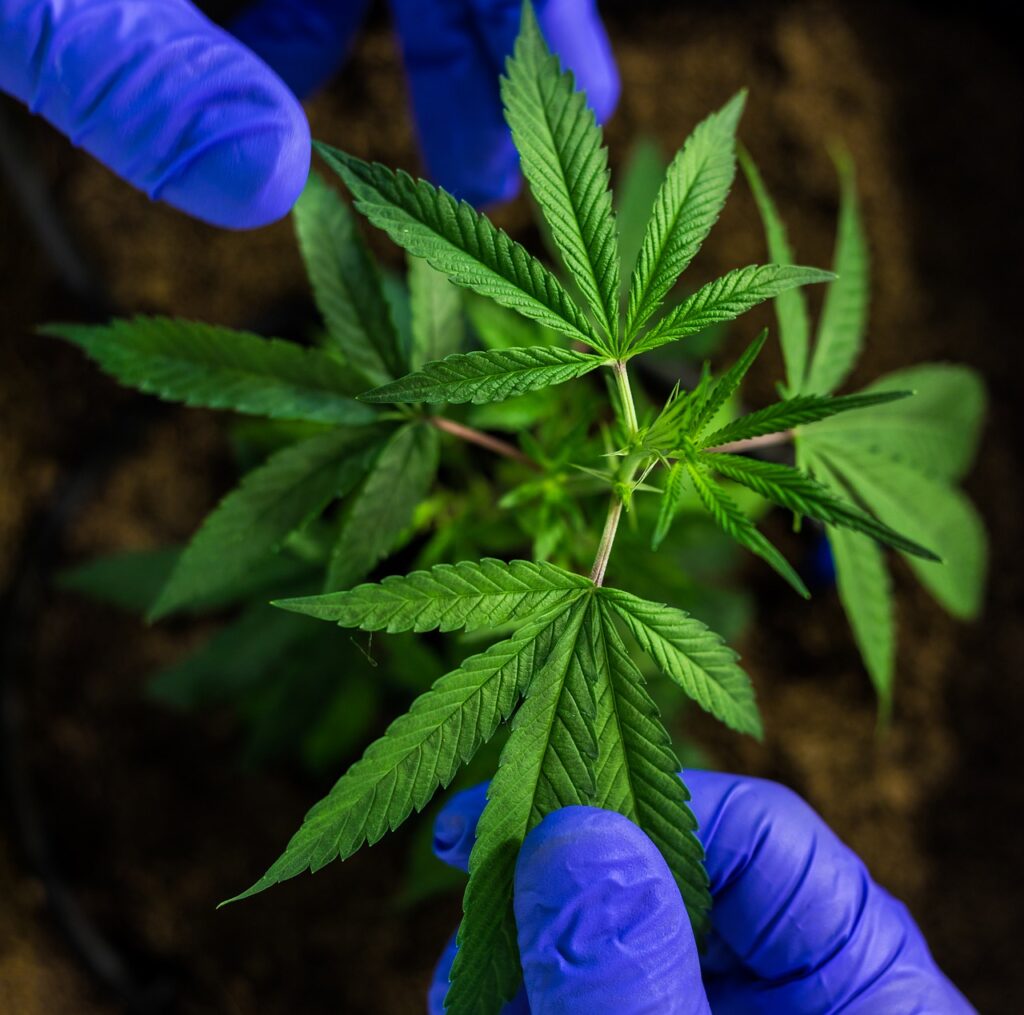Legal Medical Marijuana

Navigating the legal landscape of medical marijuana can be tricky since laws differ widely across states. You’ll generally need a recommendation from a licensed physician and a state-issued medical marijuana card. Be aware of possession limits, as states vary from allowing grams to ounces. When traveling, know both your home state and destination’s regulations, and keep marijuana in its original packaging. Remember, federal laws still classify marijuana as a controlled substance, making interstate travel with it illegal. With changing legislation, there’s potential for more acceptance and expanded access—making it essential to stay informed about future developments.
Overview of Medical Marijuana Laws
Medical marijuana laws vary significantly from state to state, shaping how patients can access and use cannabis for therapeutic purposes. If you’re considering medical marijuana, you’ll need to know your state’s specific regulations. Some states have comprehensive medical marijuana programs, while others have more restrictive measures or none at all.
For instance, states like California and Colorado have expansive programs, making it relatively easy for qualified patients to obtain medical marijuana. You’ll likely need a recommendation from a licensed physician and a state-issued medical marijuana card to purchase and use it legally. In contrast, states like Texas have more limited programs, often restricting the types of conditions that qualify and the forms of cannabis available.
Additionally, possession limits vary widely. In some states, you can possess several ounces, while others might cap it at a few grams. Knowing these limits is crucial to staying compliant with the law.
Also, be aware of where you can legally use medical marijuana. Public consumption is generally prohibited, and using it in places like schools or workplaces can lead to significant legal consequences.
Understanding your state’s medical marijuana laws will help ensure you’re using cannabis legally and responsibly.
Traveling with Legal Medical Marijuana
When you’re traveling with medical marijuana, it’s essential to understand the laws of both your home state and your destination. Medical marijuana regulations vary widely, and what’s legal in one state might be illegal in another. Before you hit the road, check the specific guidelines of the state you’re visiting.
Always carry your medical marijuana card and any relevant documentation from your healthcare provider. This paperwork can be crucial if you’re questioned by law enforcement. Make sure your medical marijuana is stored in its original packaging, clearly labeled, and out of reach, preferably in a locked container.
If you’re flying, know that the TSA operates under federal law, which still classifies marijuana as a controlled substance. While TSA officers aren’t actively searching for marijuana, they may refer the matter to local law enforcement if they find it during a search. Some airports in states where medical marijuana is legal might be more lenient, but it’s still a gamble.
Driving across state lines with medical marijuana can be particularly tricky. Federal regulations apply, and crossing state lines with marijuana is illegal, even if both states have legalized it. Planning ahead and understanding the legal landscape can save you a lot of trouble.
Future of Medical Marijuana Legislation
As awareness and acceptance of medical marijuana continue to grow, legislative changes are on the horizon that could significantly impact its legality and accessibility. You might see more states moving to legalize medical marijuana, driven by increasing evidence of its therapeutic benefits. Lawmakers are likely to introduce bills that expand qualifying conditions, making it possible for more patients to access medical cannabis.
Federal legislation could also shift dramatically. Efforts to decriminalize marijuana at the national level or even fully legalize it are gaining traction. If these laws pass, you’ll notice a more uniform approach across states, reducing the confusion and legal risks currently faced by patients and providers.
You should also watch for changes in how marijuana is classified. Currently, it’s a Schedule I drug, but there’s growing momentum to reclassify it, which would open up more research opportunities and possibly lead to broader acceptance in the medical community.
Moreover, technological advancements and better data collection will likely influence future legislation. Lawmakers will have access to more precise information on marijuana’s effects and benefits, helping craft more informed policies. Keep an eye on these developments, as they’ll shape the future landscape of medical marijuana.
Challenges and Controversies in Medical Marijuana Law
Navigating the legal landscape of medical marijuana often feels like walking through a minefield due to conflicting state and federal laws. You might live in a state where medical marijuana is legalized, but under federal law, it remains a Schedule I drug. This classification means the federal government views it as having no accepted medical use and a high potential for abuse. Such discrepancies create significant issues for patients, caregivers, and medical professionals.
For instance, you might face challenges obtaining a prescription, as some doctors are hesitant to recommend a substance that’s federally illegal. Even if you get a prescription, finding a pharmacy might be tricky since many are wary of federal repercussions. Banking is another hurdle—financial institutions are often reluctant to work with marijuana-related businesses, leading to cash-only operations that pose safety risks.
Additionally, employment can become a legal quagmire. Despite having a medical card, you could still face job termination if your employer enforces a zero-tolerance drug policy.
Furthermore, if you travel across state lines, you risk legal trouble carrying your medication. These challenges make it clear that until federal and state laws align, navigating medical marijuana’s legal landscape will remain fraught with difficulties.
marijuana doctors
marijuana doctor
MARIJUANA DOCTOR
MARIJUANA DOCTOR
marijuana doctor
medical marijuana
medical cannabis
medical marijuana doctor
medical marijuana doctor
medical marijuana doctor
medical marijuana doctor
medical marijuana doctor
medical marijuana card
medical marijuana card
medical marijuana card
medical marijuana card
medical marijuana card
medical marijuana patients
texas medical marijuana
texas medical marijuana
texas medical marijuana
texas medical marijuana
texas medical marijuana
texas medical marijuana
compassionate use registry
medical marijuana dispensaries
medical marijuana dispensaries
medical marijuana journey
medical marijuana journey
texas department
texas department
texas department
post traumatic stress disorder
post traumatic stress disorder
post traumatic stress disorder
qualifying medical conditions
qualifying medical conditions
qualifying medical conditions
qualifying medical conditions
qualifying medical conditions
low thc cannabis
low thc cannabis
low thc cannabis
low thc cannabis
low thc cannabis
medical conditions
medical conditions
multiple sclerosis
multiple sclerosis
multiple sclerosis
multiple sclerosis
multiple sclerosis
san antonio
san antonio
san antonio
san antonio
san antonio
alleviate symptoms
public safety
incurable neurodegenerative disease
incurable neurodegenerative disease
incurable neurodegenerative disease
compassionate use act
compassionate use act
compassionate use act
metric and imperial units
metric and imperial units
metric and imperial units
initial consultation
initial consultation
initial consultation
dallas tx
dallas tx
dallas tx
dallas tx
dallas tx
intractable epilepsy
intractable epilepsy
intractable epilepsy
amyotrophic lateral sclerosis
amyotrophic lateral sclerosis
amyotrophic lateral sclerosis
potential benefits
medical marijuana doctors
A marijuana doctor specializes in assessing patients to determine if they qualify for medical cannabis use. These professionals provide recommendations and guidance on how to use cannabis for therapeutic purposes ensuring patients receive the appropriate treatment for their conditions. Their expertise helps patients navigate the complexities of medical cannabis laws and usage.
medical marijuana doctors
medical marijuana doctors
medical marijuana doctors
medical marijuana doctors
well being
low thc
low thc
physician
physician
physician
physician
physician
texas
texas
texas
texas
texas
marijuana doctors
marijuana doctors
marijuana doctors
marijuana doctors
marijuana doctors
doctor
doctor
doctor
doctor
doctor
prescription
prescription
prescription
prescription
prescription
access
access
access
access
access
qualify
qualify
qualify
qualify
qualify
specific needs
specific needs
specific needs
specific needs
specific needs
cannabis
cannabis
cannabis
cannabis
cannabis
dallas
dallas
dallas
dallas
dallas
treatment
treatment
treatment
treatment
treatment
patient
patient
patient
patient
patient
pay
pay
pay
pay
pay
education
education
education
education
education
benefits
benefits
benefits
benefits
benefits
marijuana
marijuana
marijuana
marijuana
marijuana
request
request
request
request
request
medicine
medicine
medicine
medicine
medicine
evaluation
evaluation
evaluation
evaluation
evaluation
telemedicine
telemedicine
telemedicine
telemedicine
telemedicine
consult
schedule
schedule
schedule
schedule
schedule
medications
medications
approved
doctors
doctors
doctors
doctors
doctors
cancer
cancer
cancer
cost
cost
cost
cost
cost
home jump left
home jump left
home jump left
dallas texas
legal
legal
legal
visit
visit
visit
visit
visit
city
city
ailments
person
person
person
person
person
benefit
concerns
concerns
